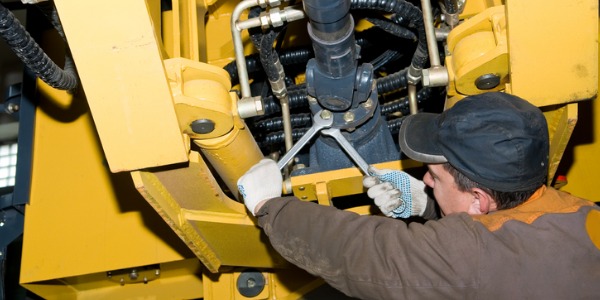What is an Industrial Machinery Mechanic?
Industrial machinery mechanics maintain and repair factory equipment and other industrial machinery such as conveying systems, production machinery, and packaging equipment. Workers must follow safety precautions and use protective equipment such as hardhats, safety glasses, and hearing protectors.
Get online training through our partner:
What does an Industrial Machinery Mechanic do?

Industrial machinery mechanics typically do the following:
- Read technical manuals to understand equipment and controls
- Disassemble machinery and equipment when there is a problem
- Repair or replace broken or malfunctioning components
- Perform tests to make sure that the machine is running smoothly
- Adjust and calibrate equipment and machinery
Industrial machinery mechanics use technical manuals, their understanding of industrial equipment, and careful observation to discover the cause of a problem. For example, after hearing a vibration from a machine, an industrial machinery mechanic must decide whether it is due to worn belts, weak motor bearings, or some other problem. Typically, years of training and experience are needed to diagnose all problems fully.
Computerized diagnostic systems and vibration analysis techniques are also used to help figure out the source of problems. After diagnosing a problem, an industrial machinery mechanic may take the equipment apart to repair or replace the necessary parts.
Increasingly, it is expected for one to have the electrical, electronic, and computer programming skills to repair sophisticated equipment. Once a repair is made, industrial machinery mechanics must test the machine to make sure it runs smoothly. They may also do preventive maintenance. In addition to hand tools, lathes, grinders or drill presses are used. In some cases, welding may be required.
What is the workplace of an Industrial Machinery Mechanic like?
Most industrial machinery mechanics work in factories or power plants or at construction sites. Most are employed full time during regular business hours. However, mechanics may be on call or assigned to work nights or weekends. Overtime is common.
Industrial machinery mechanics suffer common injuries, such as cuts, bruises, and strains. They also may work in awkward positions, including on top of ladders or in cramped conditions under large machinery. To avoid injuries, they must follow safety precautions and wear protective equipment such as hardhats, safety glasses, steel-tipped shoes, and hearing protectors.
Industrial Machinery Mechanics are also known as:
Industrial Maintenance Mechanic
Industrial Mechanic